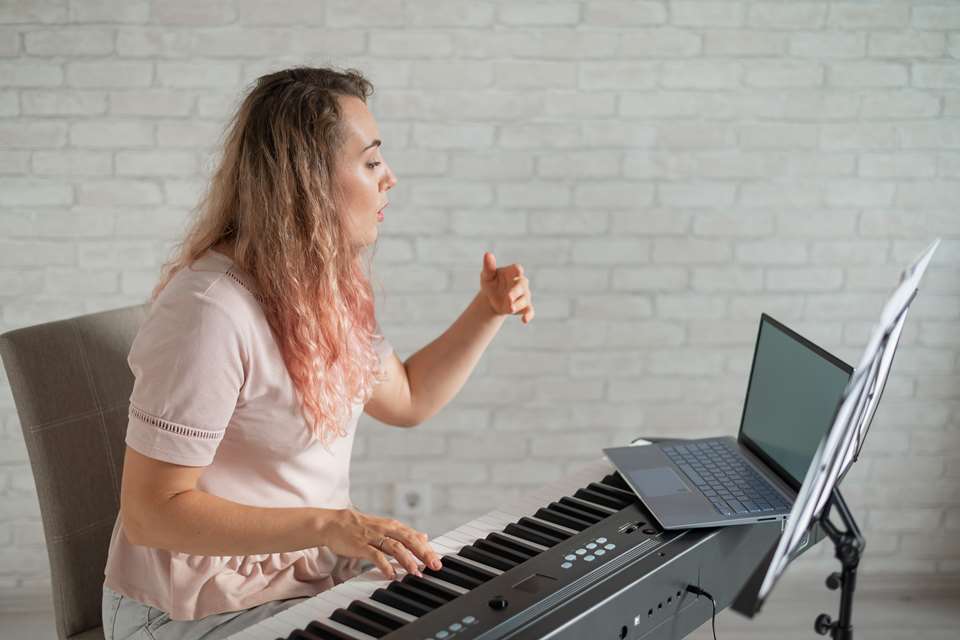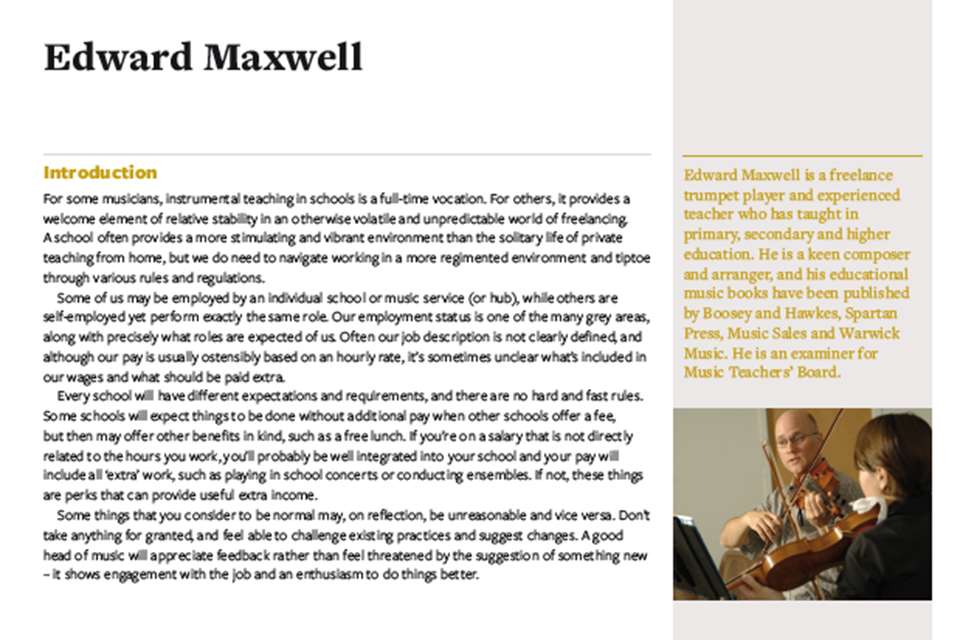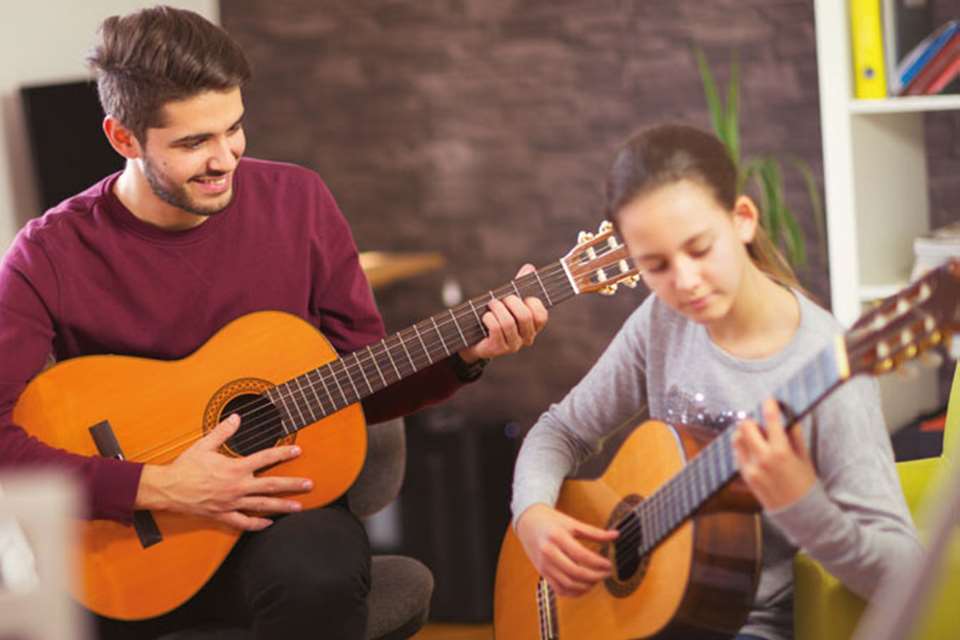In sync with the times: SYNKii for instrumental music teachers
Harriet Clifford
Wednesday, June 1, 2022
Are online instrumental lessons things of the pandemic-related past? Co-founders of SYNKii think not, as Harriet Clifford discovers.

‘Latency’ is a word with which many music teachers have become very familiar over the last few years, particularly those who were forced to take their instrumental lessons online. Using a video call platform like Zoom, the delay between a student playing a note on their instrument and you as a teacher hearing said note makes it almost impossible for student and teacher to play together during a lesson. Over the last two years of on-and-off online teaching, many people have come up with useful tips and workarounds, but music teachers Boram Choi and Lawrence Jenner decided to design a product that could go some way to improving the situation. SYNKii was born.
‘The first prototype of the whole product was a way of syncing between two digitalised pianos,’ says Choi, who started learning the piano in Korea at the age of four. ‘That was the main aim – so that I could teach students rhythm and play in real-time during the pandemic. Then, later on, we realised that there were more people struggling with the same thing, so we developed as a company and tried to add more features that people needed too.’
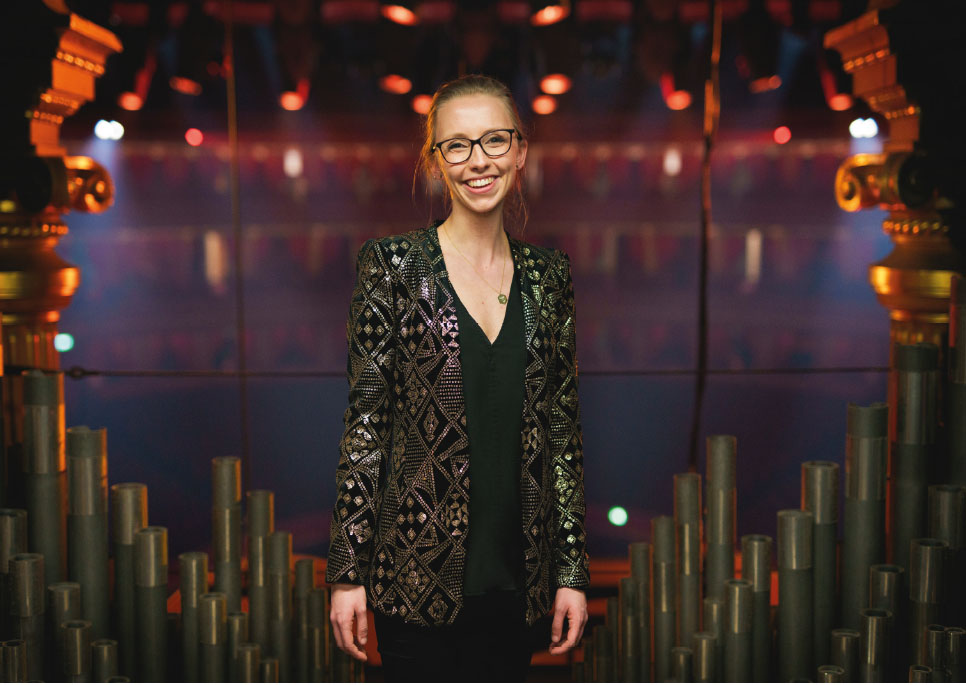
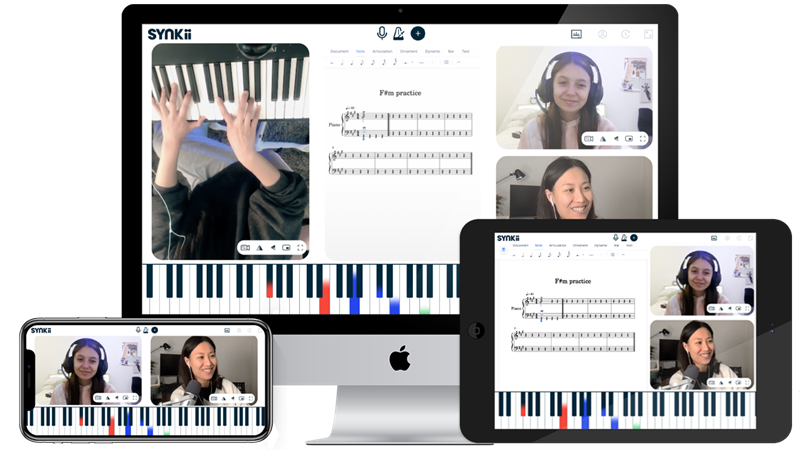
The full package
Since then, SYNKii has become an ‘all-in-one platform for teaching music online’, the features of which are constantly evolving as the joint CEOs foster more partnerships and develop new functions. On our call, I'm given a tour of the virtual classroom, and Choi demonstrates the multiple camera angle options, the draggable screen tiles that can be moved into any configuration, the playable keyboard that is colour coded depending on who is playing, and the collaborative notation software (Flat) that has been integrated with the platform.
The interactive, low-latency nature of SYNKii works best, the pair explain, when teacher and student are using keyboards or digital pianos – the platform isn't currently configured to work in the same way with acoustic pianos or other instruments. I am reassured, however, that SYNKii has a faster network than Zoom, and the peer-to-peer technology means that the sound ‘parcels’ are not redirected to a central server before being fed back to the person on the other end of the line. Additionally, Choi and Jenner have disabled the sound cancelling feature that Zoom has embedded to avoid excess noise when people are talking at the same time.
‘We're also in the process of adding SoundTrap, which is like a collaborative version of GarageBand, so that teachers can really conduct the whole online music lesson from inside the platform,’ says Choi. ‘The other thing we're trying to raise funds to build is a student practice room. Lots of my new students try to use a self-tutor app to practise, and then they struggle a lot because they don't get feedback.’ Although not currently integrated with SYNKii, Choi also shows me Notion – a note-taking software that she uses to record her lesson notes for the student. ‘Before, I used to just send emails after every lesson, but it was all scattered around in the emails, with the three pieces and technical stuff all mixed up.’ Jenner, who began learning the bass guitar in secondary school, explains that Notion has recently released its API (Application Programming Interface), which means that there's potential for future integration.
In their mission to provide the ‘whole online music lesson’ experience through SYNKii, Choi and Jenner have partnered with MTB Exams (Music Teachers’ Board). Although the agreement was ‘all very fresh’ when we spoke, Jenner says, ‘They're a very new company in relation to ABRSM and the others, so they know what it feels like to be a start-up looking for funding. David Kesel [managing director] is looking for collaboration, and if we can grow together, then he's absolutely on board – it was one of the most positive meetings we've had.’ He continues: ‘Hopefully within the next month, we'll have MTB Grades 1–8 and Diploma in Flat, and then later, we'll have the API of the exam room embedded in the backend, so you can submit your exams online.’
As well as providing an all-in-one platform for teachers, Jenner adds that they want SYNKii to be able to offer the ‘whole student journey; from picking the tutor that inspires you at the level and cost that are relevant to you, to being able to get a qualification.’
Online or face-to-face?
While SYNKii sounds excellent, and the price of £4.99 per month for three students and £2 per additional student per month seems reasonable, the elephant in the (virtual) room is that most music teachers no longer need to teach online. ‘Lots of my students still choose to have online lessons, even though we can now be in person,’ says Choi when I raise this. ‘It's the convenience, and it saves travel time and money, especially if you're coming from far away. Lots of teachers I've spoken to prefer online lessons too, as it's just more convenient. I think there's definitely been a shift in education because of lockdown.’
Jenner adds: ‘As soon as lockdown ended, there was a massive flow of lessons going back to face-to-face, but then online lessons kind of came back again. I think everyone got their social nutrition and then realised that they didn't want to take their slippers off, so decided to stay at home!’
On a personal level, Jenner says that he believes his own generation would be more inclined to learn face-to-face: ‘The feeling of acoustics in a room, or an instrument vibrating in your hands, is something visceral.’ Choi says that she thinks younger generations are more likely to be visual learners and are used to everything being gamified. ‘Even though some of my students are only four or five years old, they try to mimic what I'm doing on the keyboard.’
Students’ home environments play a part in whether they would value online or in-person learning, says Jenner. ‘If you're in a house where everything is noisy and there are multiple siblings running around, online lessons might not be as viable. The assumption is that people are going to have internet of a certain speed and have devices that will work. Although SYNKii works on every device and works with a minimum of 5MB, there are so many factors that can make it a bit of a pain.’ He adds: ‘I don't think all music should be online – of course not. But there should be the flexibility.’
SYNKii community
In January this year, the pair added a tutor marketplace to SYNKii (‘New music teacher marketplace launches with aim of challenging “ridiculous fees”’), partly as a way of driving teachers to the classroom, and partly in response to hearing about the rates on other platforms from friends. ‘It was coincidental,’ says Jenner, referring to the fact that they launched their marketplace around the same time as MusicTeachers.co.uk (a popular and longstanding marketplace) was taken over with a new business model. The coincidence worked to their advantage, however, as marketplace fees was a hot topic in the music education community.
Announcing the launch on LinkedIn, Jenner wrote: ‘After finding out that certain music tutor marketplaces/music schools take between 30–50 per cent of tutors’ lesson fees, Boram Choi and myself have decided to make our own marketplace charging only 10 per cent commission. Taking up to 50 per cent commission from a population segment that's been hit particularly hard over Covid is just exploitation. If you're a teacher looking for lessons, please sign up so we can push back against these ridiculous fees together.’
Speaking to MT for the news story at the time, he added: ‘Tutors getting 30 per cent of their lesson income taken by music tutor marketplaces does not offer a sustainable career path for any teaching professional and only encourages disintermediation. As musicians, we have created SYNKii to deliver an ecosystem that allows music teachers to build careers online and from anywhere in the world.’
Now, Jenner says that the marketplace has helped build a SYNKii community. ‘It's been really good getting a Facebook group set up with everyone discussing their ideas, and building webinars around those,’ he says. ‘We've got some incredible musicians on there – arena-playing artists, some of whom are my friends, and some of whom I've never met.’ When we spoke, the SYNKii tutor marketplace displayed around 80 teachers, and the pair hope that this number will only continue to grow in the coming months.
There's no doubt that online music lessons aren't for everyone, but Jenner's point about flexibility seems key. Having an online lesson option means that teachers can widen their pool of potential students, perhaps reaching young people living in remote areas of the country (or the world). After the last few years of isolation, no one wants to be forced online, but our increased capacity to deliver an effective music education via video call is surely something to be celebrated.


